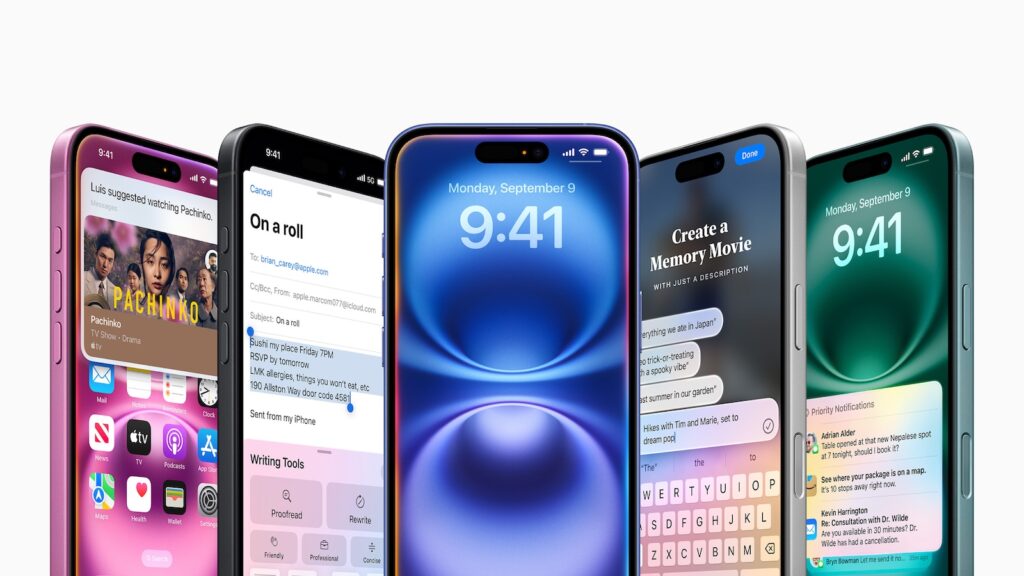Apple is facing an important regulatory hurdle in Indonesia: The company is not allowed to sell its new iPhone 16 models in the country. The reason? The strict requirements for domestic investment and production shares have not been met.
According to a report According to Bloomberg, Apple is facing a ban on the sale of the iPhone 16 in Indonesia. The country's government requires international companies that want to sell smartphones to have a local production share of at least 40%. Apple has not been able to overcome this hurdle so far.
What is the reason for the sales ban?
Indonesia has taken measures in recent years to encourage local manufacturing and reduce dependence on imports. A central part of this strategy is the requirement for foreign companies to handle 40% of production locally if they want to offer their products in the country. The aim of this regulation is to increase domestic value creation and create jobs. However, Apple does not fully meet these requirements and is therefore not allowed to bring the iPhone 16 to the Indonesian market.

According to the Indonesian Ministry of Industry, Apple has already invested around 1.5 trillion rupiah (approximately US$95 million) in the Indonesian market, but this does not yet meet the required investment target of 1.7 trillion rupiah. In addition, Apple's activities in the region have focused more on educational programs, such as setting up developer academies, rather than establishing production sites. However, this is not considered sufficient by the authorities to meet the requirements for market approval.
How important is the Indonesian market for Apple?
With a population of around 270 million, Indonesia is an important growth market for smartphone manufacturers. Apple in particular has gained a foothold here in recent years as demand for premium smartphones in the region is growing steadily. The Indonesian population is young and tech-savvy, and many consumers are interested in the latest technology, especially Apple's products. With over 350 million active mobile phones in the country, Indonesia has enormous potential that Apple is unlikely to miss. The timing of the ban is particularly unfortunate for Apple: iPhone 16 sales are already strong in other markets, especially China. A lack of access to Indonesia therefore means a missed opportunity for Apple to continue to grow and increase sales in an important region.
How do iPhone 16 models still get to Indonesia?
Even though Apple is not officially allowed to offer the iPhone 16 in Indonesia, there are still ways for the device to enter the country. In fact, about 9,000 iPhone 16s have already entered Indonesia through personal imports. These devices are brought into the country by travelers or crew members or sent by mail. However, the Indonesian Ministry of Industry emphasizes that these imports are for personal use only and cannot be resold commercially. While this "loophole" shows that there is demand for the iPhone 16 in Indonesia, it is not a satisfactory solution for Apple. The company would rather distribute its products officially in order to be able to provide a controlled sales strategy and full customer support.
Possible impact on Apple and its future strategy
The ban poses the question for Apple of how the company can adapt its strategy in Indonesia to secure long-term access to the market. One option would be to meet production requirements and invest more in local production capacities. This would allow Apple to increase local value creation and meet regulatory requirements. An alternative could be to continue to rely on existing educational initiatives and hope that these lead to a relaxation of regulations in the long term. Apple's developer academies are a step in this direction and are intended to strengthen the tech community in Indonesia. However, the current ban shows that the Indonesian government does not consider this approach to be sufficient.
Indonesia as a key factor: How Apple could secure access to this market
The iPhone 16 sales ban in Indonesia is an unexpected obstacle for Apple. Despite significant investments and efforts to strengthen ties with the region through educational initiatives, Apple was unable to meet the requirements for market access. With a market potential as large as Indonesia's, it will be a strategic priority for Apple to overcome this hurdle. Whether the company is willing to invest in local production capacity or try to relax the rules through negotiations remains to be seen. But the fact is that Indonesia is a market with great potential and Apple will explore all options to be successful here in the long term. (Image: Apple)
- iPhone 16 Pro: Create slow motion videos in 4K at 120 fps
- iPhone 16 freezes? Force restart – here's how
- iPhone 16: New photographic styles for individual shots
- iPhone 16: How to disable the camera control button
- iPhone 16: Use the camera control button as a magnifying glass
- iPhone 16: Use camera control button as QR scanner
- iPhone 16: How to disable the "Preview" feature
- iPhone 16: Adjust pressure sensitivity of camera controls
- iPhone 16 Camera: How the new camera control button works
- iPhone 16 cases from Pitaka: Slim design, strong protection





